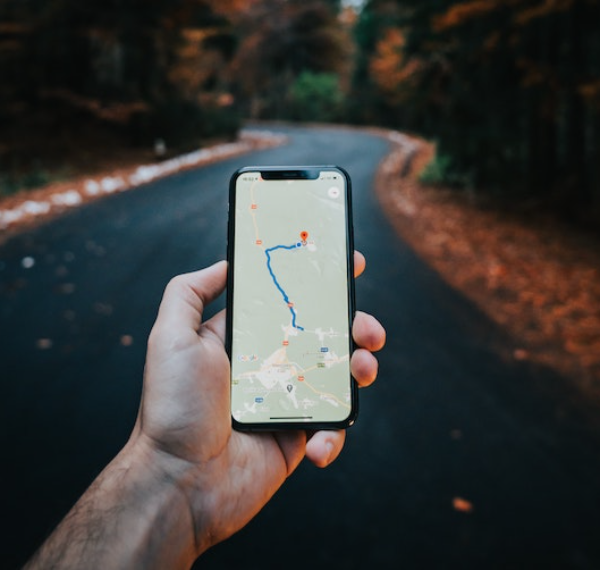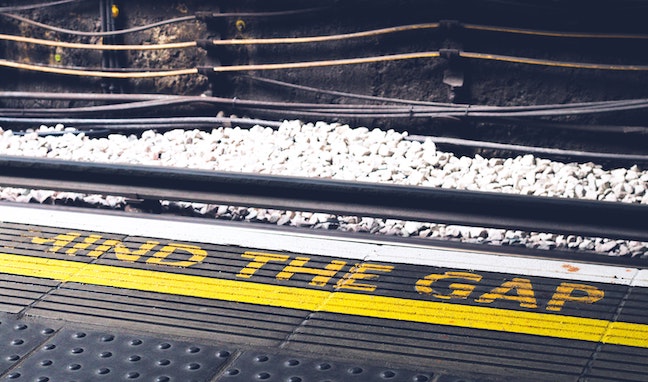

One of the most important steps to finding a PR match is knowing how to choose between the various different proposals your shortlist of freelancers will send you. Don’t worry, we are here to help you hire the right public relations professional.
Imagine it like planning a long drive somewhere, and all the preparations you have to take, as well as the various pitstops you have to make, on that journey.
Your starting point is your work brief, and your destination is the results - so the proposal itself maps out that journey and how the media coverage will be achieved and deliver.
What is key to recognise is that nobody wants a surprise once you start working together so a well-written and well-structured proposal of what is planned - showing why and how - helps both sides understand the road ahead and details who is responsible for what.
Each proposal may offer alternative routes before arriving at the final destination so it's up to you to go through them and decide how you want to get there.
Our top 10 checklist of proposal navigating tips below will also be helpful for PRs themselves - offering a greater understanding of what is useful to include in a winning proposal.

A great proposal should highlight any potential pitfalls and show ways to try and mitigate these.
1) Are you excited?
Let's cut to the chase, did you get that 'wow' moment from what was being suggested? There's no point being offered a route that takes in the beach, when you want a view of country fields.
A proposal should deliver excitement, so if it didn't, it might not be for you.
Critically, does it even understand your explained objectives and desires? If the proposed actions don't match the type of journey you had in mind, then it's likely over before it began.
2) Remember no two proposals are alike
Your PR could send you a 30-page deck of slides, or deliver a cover email with a simple list of bulleted plans. It will really depend on your brief... so ask them for the format you want.
If you don't want to wade through War and Peace, tell them. They'll be so happy.
Communication really is key here to keep this journey smooth and satisfying - it's never fun if two people travelling together can't have a good conversation along the way.
3) You can ask more questions
The proposal isn't the end of the process. You're entitled - and often should - go back to the PR and ask to clarify anything you're not sure of, or want more explanation on.
The freelancer can then put a bit more gas into the tank and update and adjust the proposal based on this feedback. The more collaborative the approach the better. Like any good drive - someone has to steer and someone navigates.
4) Is it clear enough?
Now of course, some specific details will have to be worked up once you start on the journey together, but the methods, the strategy, the thinking and the deliverables behind the plan should be clear. You want a firm grasp to fully understand where you are heading.
But if the windscreen is full of mud and dirt, you won't be clear on what the road in front of you looks like. So be very sure this is the right person to guide you through this journey in a way you can understand, while being comfortable in the passenger seat.
5) Have they included proposed results?
PR is a results business but you shouldn't expect them to be able to predict exactly what the weather will be like when you end up at the destination.
Instead, they should be giving you an indication of when it's worth setting off to maximise your time in the sun - and what you'll achieve once you've 'made it'. This will usually come in the form of some KPIs, or 'key performance indicators'.
These could be structured differently in each proposal, based on your brief and goals. They will likely revolve around amounts of coverage planned, a hit list of specific media titles they will talk to or generate coverage in, or the buzz a specific message will generate on social media. It might also detail what call to action will be included in stories or the number of interviews they aim to set up with journalists.
When you're driving this project forward together, these are the things you can expect to see when you arrive, clearly outlined in advance.
6) What are the costs?
Any good proposal should include the costs for the work and various tactics and activities involved. Without that, how can you give the green light and get started? You wouldn't just jump in the car and head on a trip without checking you have enough fuel to sustain it all the way. You don't want to run out halfway through.
It's crucial to get this right at the start so you both know what to expect and are on the same page regarding the level of resource needed to complete the initial planned phase of this journey together.
Of course, things may evolve, you may want to go on to other destinations together afterwards, but you can decide to increase the fuel budget at a later date if so. Our blog post on setting a budget will be helpful.
7) Are you satisfied it covers all your questions?
During the interview, you would have asked a lot of questions of your PR - and hopefully gave them a lot to think about for pulling together a proposal. Have they covered them all here?
But right now, you also need to ask questions of yourself when reading it. Are you fully in agreement about where you are now heading?
Three key ones are: Has this understood my business vision and goals? Does this feel right to me? Is it feeling like good value for money too?
8) What challenges do they foresee?
What are the worst case scenarios? Nothing always goes to plan; on any journey there will be roadworks, traffic jams or potholes. A proposal must always look ahead to this - and offer an indication of what the back-up route might look like.
A great proposal should highlight any potential pitfalls and show ways to try and mitigate these. If this means any additional costs need to be considered, then they should be included here.
9) How will we feedback?
Reporting is a key PR skill. You will want to know how everything went. So does the proposal show how together you will talk through the successes, and also chat about potential issues standing in the way of that success?
Like any good trip, you'll want to look back on it and decide what you’d re-visit or skip next time round based on your experience and new learnings.
10) What does the next little while look like?
You've read the whole proposal so you know the next steps, right? Maybe not? What do you mean there are no next steps?
All proposals should be clear on what the next week, two weeks or month looks like, and what is happening when? You can't sign off on any journey if you don't know the times and dates you'll be heading out.

You don't have to understand the ins and outs of PR to pick a good proposal. This guide will help, but you can just think about what you want to see and what will help you decide, then go with your gut.
And then what?
Well, now it is decision time! Having reviewed each proposal, you should be in a position to select the right PR specialist for your PR, and head off together (into the sunset!) towards success.
When all is said and done, you don't have to understand the ins and outs of PR to pick a good proposal. This guide will help, but you could just think about what you want to see and what will help you decide, and include this in your initial brief for them to follow - check out this article on briefs right here as a handy reminder.
Nibble client Paul Lock devised a checklist and his own scoring criteria and then simply trusted his gut. Paul explains: “I wanted to find someone to help promote my modern art. Two PRs from the directory had a very similar knowledge and skills, so I sat down and created a scoring criteria of aspects that mattered to me and marked each one against that out of five.
“For instance, chemistry, experience, professionalism, contacts and past experience. This helped me to see which one overall was a better fit - and it backed up my gut feeling in a quantitative way.”
To download your own score chart courtesy of Nibble, click here.
A proposal helps you with the first step of finding someone who you feel you can trust, who not only gets you and your goals, but shows you a solid plan to achieve them. The next stage is to collaborate further and show them what's under the hood of your business. Read about that here in our Onboarding Freelancers Explained guide.
We can help match you with the right PR consultant from the UK PR freelancer network to reach more of your audience, customers or stakeholders and achieve your goals. Sign up to get started.